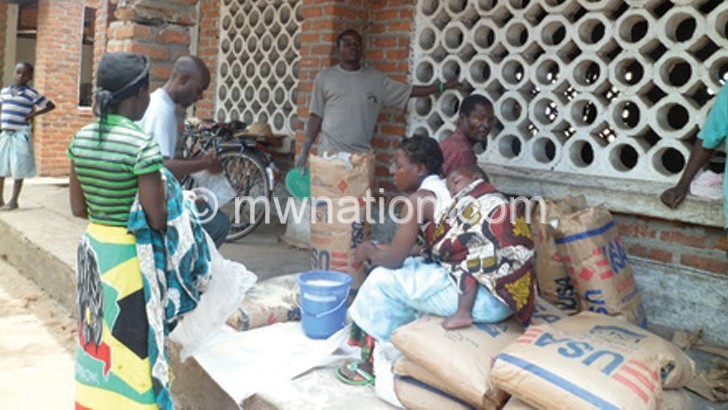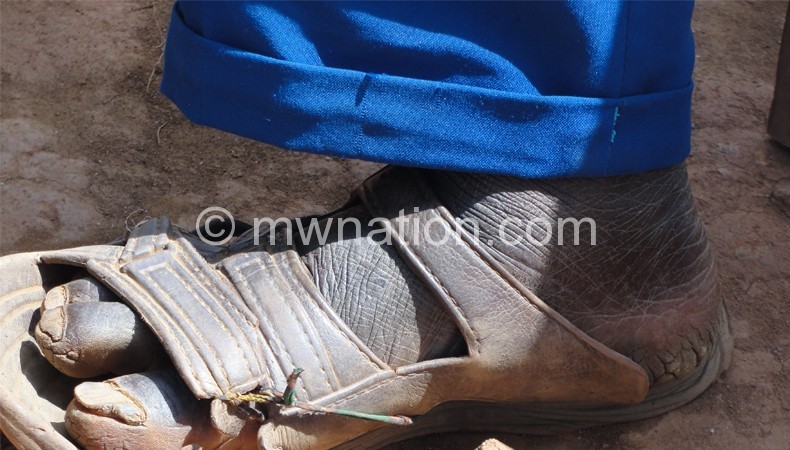‘Malawians suffered in 2015’
Economic commentators have described 2015 as a year when lives of average Malawians took a plunge as evidenced by soaring hunger, diminished incomes, sharp rises in essential commodity prices, interest rates, drug stock outs and food shortages in some public hospitals across the country.
Outspoken consumer rights activist John Kapito, summing up the year, told Weekend Nation on Wednesday that the quality of lives of average Malawians has dwindled over the year.
Said Kapito: ‘‘From the beginning of 2015, life has been a nightmare for many Malawians and the administration lacked the wisdom and the vision to put into action some of the key elements of their manifesto promises.”
During the year, the media has been awash with widespread reports of food shortages across the country, which included drug stock outs. Nation Publications Limited newspapers within the year reported many cases of drug shortages in many public hospitals and that patients were forced to buy drugs on their own.
President Peter Mutharika expressed surprise at the reports at a development rally he held in Blantyre in July 2015 amid growing concerns by health experts, including a grouping of medical doctors and nurses who pleaded for a quick solution to the problems.

But finger-pointing between former minister of health Jean Kalilani and Treasury on one hand and district health officers (DHOs) on the other, proved the crises were beyond comprehension.
Nevertheless, Kapito in his summation blamed the Democratic Progressive Party (DPP) administration for what he termed as failure by the regime to change the way the economy is being managed for the betterment of ordinary Malawians, most of whom live below the poverty line.
As the year progressed, hunger took centre-stage, with reports of acute food shortages emerging from Dedza, Henga Valley in Rumphi, Thyolo, Mzimba, Chikwawa and Mangochi, among other districts.
Worse scenarios emerged in Zomba where The Nation reported that people in some villages were surviving on mangoes and wild tubers.

Vision 2020 lofty ideals
The food security forecast for the 2015/2016 season conducted by the Malawi Vulnerability Assessment Committee (Mvac) indicated that up to 2 833 212 Malawians (representing 17 percent of national total population of 16 310 431) would not be able to meet their annual food requirements during the 2015/2016 consumption period.
It added that the total humanitarian staple food needs to support the affected population was estimated at 124 183 metric tonnes of maize, of which in monetary terms could be translated to K18.6 billion (about $28.5million) if the maize is sourced locally.
Following the development, the price of maize on the local market rose to K110 per kg in Admarc markets, with strict quotas of 20 kg per buyer whereas private traders were charging as high as K180/kg.
On his part, executive director for economic think tank Malawi Economic Justice Network (Mejn) Dalitso Kubalasa painted a gloomy picture of the country’s economic situation.
“With the continued fiscal and monetary turbulence still prevalent, the economic vicious cycle is furiously on and in urgent need of stemming. Too many risks and uncertainties are still conspiring against the earlier macro-economic stability projections on many fronts,” said Kubalasa.
In his State of the Nation Address (Sona) delivered at the opening of the 2015/2016 budget meeting of Parliament, President Mutharika outlined his administration’s commitment to put the economy back on track.
Among other things, Mutharika said government would implement economic policy reforms that would lead to stability of exchange rates.
But six months into the current financial year, the kwacha is trading at 670 to the US dollar, having slipped by 48 percent since July last year.
Business people have been complaining of huge shocks in their capital bases courtesy of inflationary challenges, which they say will continue to push the burden to the consumer.
Responding for the government, on behalf of Finance Minister Goodall Gondwe who was reported out of the country, Minister of Information Jappie Mhango acknowledged challenges government is facing on the economic front.
“Of course, it goes without saying that 2015 was a very challenging year to government, economically. Firstly, it was because we entered the year with a national calamity, when floods devastated more than 15 districts. Government had to fund a recovery programme which cost the tax payer a lot. As a result, the economy took a knock,” said Mhango.
He said this was coupled with the stand taken by the country’s bilateral donors to withhold direct budgetary support which he said affected many sectors of government operations. n





